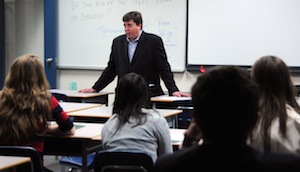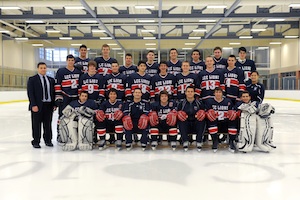 One of the fundamental principles at LCC is equality: equality in terms of opportunity for all students, and of course, especially between girls and boys. We want each student to have an equal voice and capacity to discover and develop personal potential.
One of the fundamental principles at LCC is equality: equality in terms of opportunity for all students, and of course, especially between girls and boys. We want each student to have an equal voice and capacity to discover and develop personal potential.
Unfortunately, gender equality is not practiced around the world. So much so, that on October 11th, the United Nations launched the very first International Day of the Girl. It was an effort to recognize that gender divisions do exist, but in a positive way celebrate, discuss and advance girls and their potential. On this inaugural occasion, there was a particular emphasis on the need for basic universal education, which in some cultures is often denied to girls.
It was notable that around the same time as the first International Day of the Girl, a dreadful event occurred in Pakistan that highlighted the need for such a global campaign: the shooting of 14-year-old Malala Yousafzai. She’s a Pakistani teenager – a student who has openly advocated on an Internet blog for the rights of girls to be educated in Pakistan and other countries. Shockingly, she was viciously shot in broad daylight last week as she returned home from school. The shooter was a member of the radical Taliban extremist group seeking to stop Malala and other like-minded girls from going to school and speaking out. The shooting has caused global outrage and reminds us that there is much work to be done.
Beyond this abominable reality, consider a few of the issues faced by girls in our world:
- Annually millions of girls are required to leave school after only a few years and forced to move into a lifetime of domestic chores with no more education made available to them.
- It is estimated that today some 70 million girls under the age of 18 – and as young as 8 or 9 – have been forced into marriages where they have little say about anything, and these girls are often victims of domestic violence. Statistics show that 25,000 girls become child-brides every single day. One in nine girls between 10 and 14 years old has been forced into marriage. Child-brides are often bought, sold and discarded at the whims of men.
- Often, girls and women in many developing countries have limited access to work and a fair wage, not to mention little or no legal rights to inherit property or wealth.
Issues affecting girls are not an exclusive matter of developing countries. Studies show that in United States more than a half of all rapes of females happen before age 18. One in five high school girls in the USA has been physically or sexually abused by a dating partner.
On this front the voices of Canadian girls and boys really matter. They can be advocates and should consider ways to speak out to increase global awareness. It is possible to better girls’ lives, allow them to reach their full potential and raise the level of development and engagement in the most challenged communities in the world.
Melinda and Bill Gates are co-chairs of the Gates Foundation, which funds health and anti-poverty projects in developing countries. On the occasion of the inaugural International Day of the Girl, Melinda Gates tweeted “A girl’s potential is explosive – the sky isn’t even the limit – so pass it on.”
Please do so. – Chris Shannon, Headmaster



